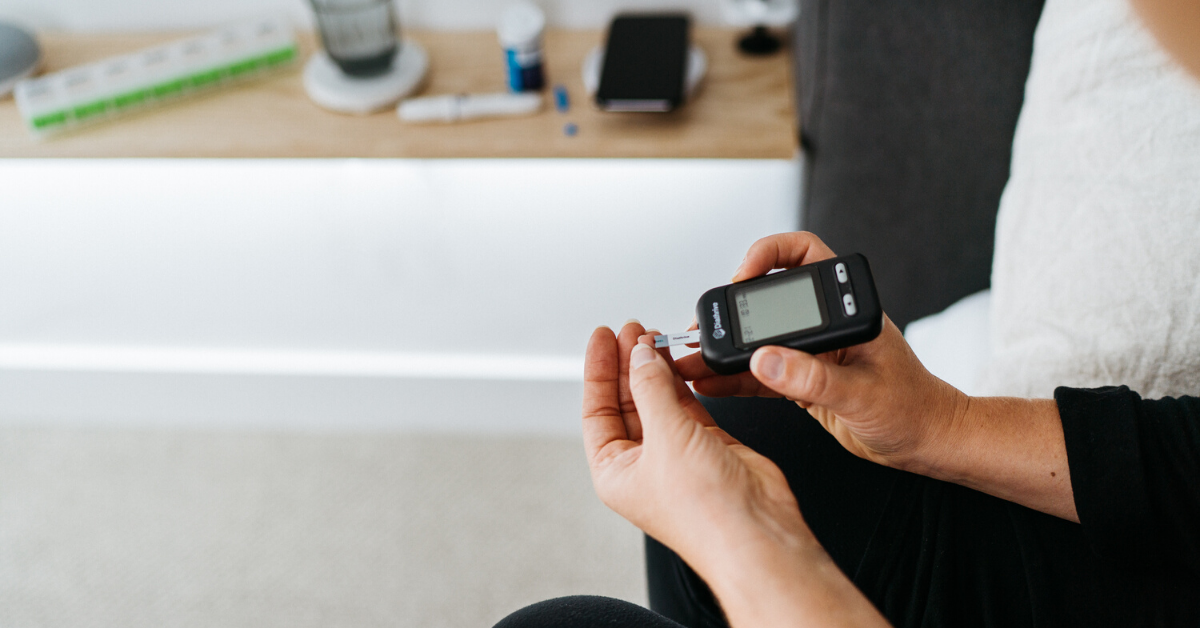
This block of time can make a significant difference in your HbA1c journey. Here are some ideas to help you reach your goal.
My A1c went up from 6.3 to 7.1 in the past 5 or so months, and while I know it’s largely related to the life-changing decisions I’ve made in the past year that required a great deal of energy and time, I know it’s up to me to get myself back into the low 6s.
Now that life has settled down after a separation, hustling between a tiny temporary apartment and where my young kiddos still slept, starting a new job, buying a new home, and selling my old home...I feel like I can refocus on better blood sugars.
But where the heck do you start?
Overnight Blood Sugars.
If your A1c is the result of your daily blood sugars, and there are 24 hours in a day -- that means that your 8 hours of sleeping is ⅓ of your A1c.
When you wake up with high morning blood sugar, not only were you high for most of the night, you’re also likely going to be high for the rest of the morning. (What a frustrating way to start the day!)
If you struggle to get it down, you could still be high by lunch. Or, if you get it down too quickly, and too low, you’re treating low blood sugars and risk rebounding high again.
Now you’re quickly approaching ⅔ of the day with high blood sugars!
By waking up in your goal range every morning, you’re not only ensuring that you spent the night in your goal range, but you’re also more likely to spend the first half of your day in your goal range.
Waking up in your goal range also ensures you get a good night’s sleep and it sets the day off on a positive tone, setting you up for more blood sugar success throughout your day.
Identifying my overnight blood sugar dilemma
I know that my blood sugars are not high most of the day. I check my blood sugar frequently (thanks, Diathrive!), I eat a very clean diet for 80 to 90 percent of my meals that are generally low-carb and contain a lot of veggies, and I exercise every day.
This leads me to believe that the culprit of my increased A1c is largely related to overnight highs.
I’ve gotten into a habit lately of over-dosing for evening meals because I hate being high. But I’m over-dosing insulin to my own detriment, leading to more overnight lows, over-treating lows, and rebounding high which means I’m waking up high. (Oy, that was quite a sentence.)
Even my boyfriend noticed that I tend to over-estimate the amount of insulin I need for dinner and evening snacks. I take too much insulin and then end up over-treating low blood sugars in the middle of the night. Waking up in the high 200s or low 300s. Yuck.
During the day, I’m pretty steadfast about not overtreating low blood sugars. But the lows I’ve been having in the middle of the night tend to be more severe -- the sweaty, shaking, panic-inducing kind.
Instead of using the 5 or 6 pieces of fast-acting candy as I would in the middle of the day, I’m consuming 15 or so pieces. Or worse, I’m grabbing a gluten-free fig bar which adds up to about 60 grams of carbs! And I’m afraid of going low again, so I’m not taking additional insulin to accompany those excess carbs.
This needs to stop.
Enforcing better habits to improve high blood sugars
Here are a few questions to ask yourself about your diabetes habits that are leading to high overnight blood sugars:
-
What are you eating right before bed?
-
If you’re consistently high during the night, do you need more insulin with your last meal?
-
If you go to bed in-range, but wake up high, do you need more basal (background) insulin?
-
What are you using to treat low blood sugars?
-
Are you over-treating lows or under-treating highs?
-
Are you checking your blood sugar before bed?
Personally, I need to dose more carefully for my dinner to prevent those late-night low blood sugars. And then, if I do experience a low, I need to stick to my own daytime rules about treating lows with no more than 5 or 6 pieces of candy which add up to about 8 to 15 grams of fast-acting carbohydrates.
This is one goal for one part of the day that can improve my overall blood sugars which improves my overall A1c, too.

